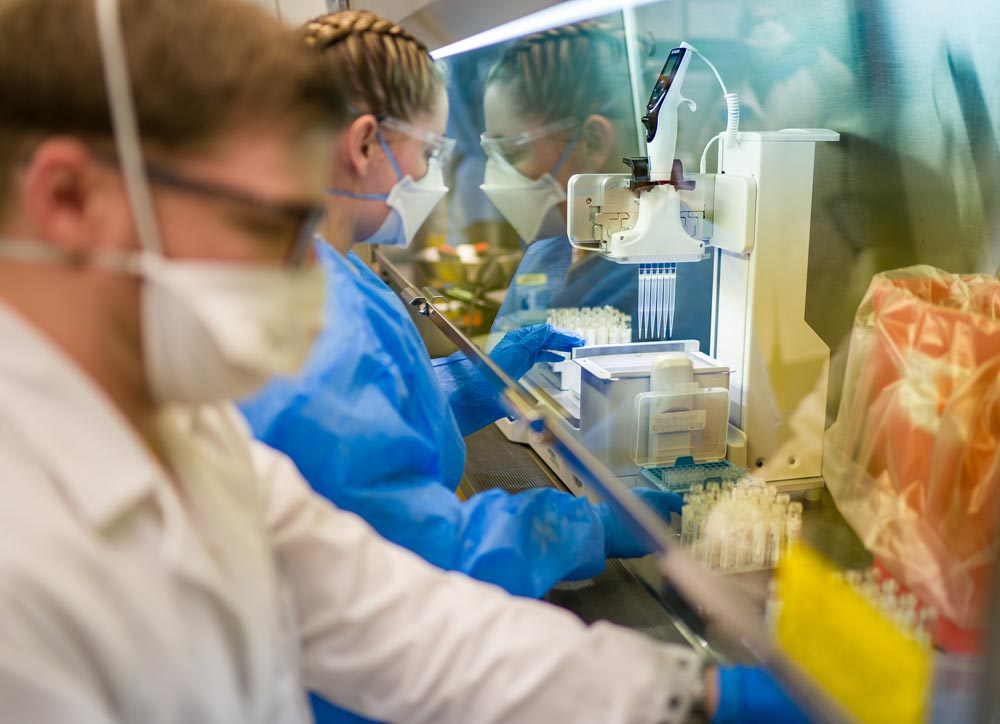
Forecasting Our Future With COVID
s we navigate from one COVID-19 variant to the next — from the deadly Delta to the fast-spreading Omicron — it’s nearly a scientific certainty that more COVID-19 variants are coming. News of new variants of the disease that’s killed more than 5 million people globally and 2,000 people in the Granite State can be frightening, mysterious and confusing to many of us in the general public.
UNH researchers are working to help figure out the future of COVID for all of us. Thanks to a $757,000 grant from the National Institutes of Health, UNH is performing genomic testing of positive cases through UNH’s state-of-the-art lab, specifically designed to handle COVID-19 testing, and the Hubbard Center for Genome Studies.

In partnership with the N.H. Public Health Laboratories at the N.H. Department of Health and Human Services (DHHS), UNH scientists are genetically sequencing roughly 12,000 stored human specimens previously confirmed by diagnostic tests to contain the virus, as well as any new positive cases that become available. Roughly half of the samples come from UNH and half from the state — right now the lab is running about 20,000 tests a week as part of its regular testing for faculty, staff and students. The objective of the project is to determine the genomic sequence of a large majority of the COVID-19 cases identified in infected individuals in the state and to apply that knowledge to better identify any variants of concern.
The information will help public health officials understand how different variants spread, if they carry similar or different clinical symptoms, and how they behave in those who may have already had the virus or have been vaccinated. Large-scale genomic surveillance of the virus will also provide data that will allow for cross-referencing with other metadata, such as date of infection, location, severity of outbreaks and characteristics in different racial, ethnic, gender and age groups.
While so much seems unknown about the next wave of COVID, what scientists and experts do know for sure is that viruses are constantly mutating — and that the next variant is likely just around the corner. That makes the work that UNH is doing even more critical.
“It’s important to know when the variants evolve and how they infect different people but knowing the genetic makeup will help us prepare for any future variant outbreaks and give us vital information if we need to design a next generation of vaccines,” says Thomas.